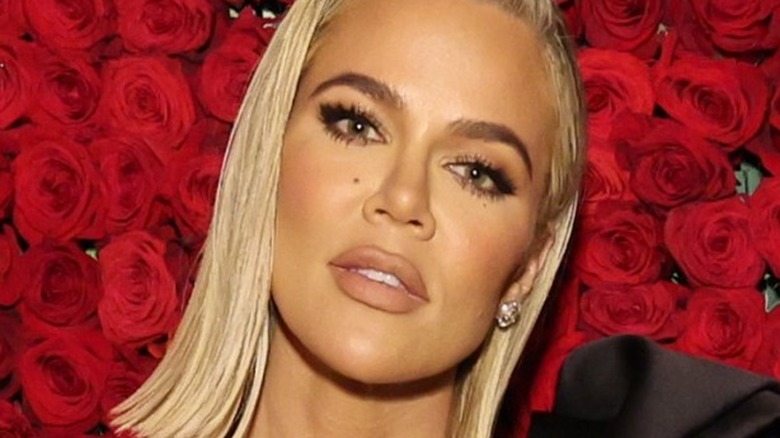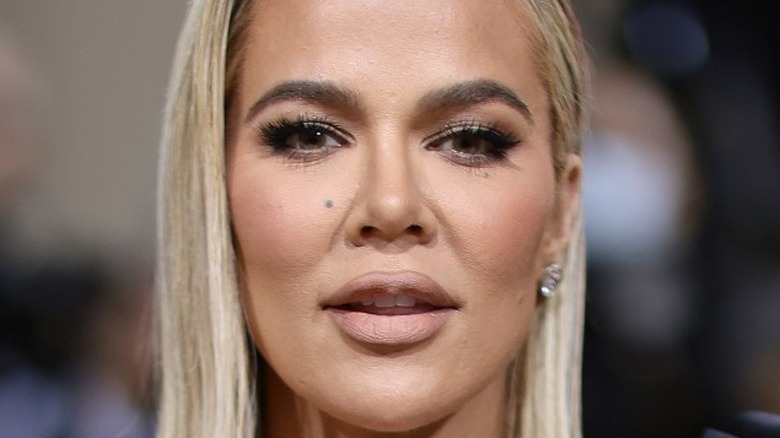Khloe Kardashian Opens Up About The Tumor She Had Removed From Her Face
A normal part of human development is the death and birth of cells. In fact, an estimated 1% of cells in the body, or 330 billion, are replaced every single day (via Scientific American). Sometimes, in this process of death and regeneration, things can go wrong. According to the American Cancer Society, cancer occurs when abnormal cells in your body continue to grow and multiply, instead of dying off as they normally would. When cells continue to grow when they should not, they may form clumps of tissue called tumors, says the National Cancer Institute.
There are two main types of tumors — benign and malignant. Benign tumors are non-cancerous, while malignant tumors are cancerous. Benign tumors do not spread to other tissues but malignant tumors do and can even grow back after removal. Cancer may affect as many as 1 in 3 people in the United States (via American Cancer Society). Khloe Kardashian recently announced on social media that she had a tumor removed from her face. Here's everything you need to know.
Khloe Kardashian's rare and mysterious face tumor
If you follow Khloe Kardashian on social media or various entertainment news outlets, you may have noticed that the reality star has recently been sporting an "ever-evolving bandage" on her face, per Entertainment Tonight. Khloe recently revealed that she had a "rare" tumor surgically removed from her face. She reportedly thought the tumor was a zit, but after seven months with no change in the growth on her face, she decided to get a biopsy, says CBS News. Dr. Garth Fisher, a Beverly Hills surgeon, successfully removed the tumor. Khloe says that she will have a scar and indentation on her face, and will rock a bandage for the immediate future, but wants everyone to "enjoy how fabulous I'm making these face bandages look."
NBC News reported that Khloe has a history of skin cancer and had a melanoma spot removed from her back at the age of 19. Most important of all is Khloe's reason for revealing her experience to everyone — she wants to encourage everyone to do at-home checks, routine skin cancer screenings, and to get any abnormal skin conditions checked out by a dermatologist.

